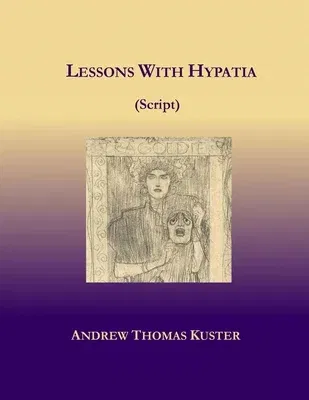Lessons With Hypatia is a musical tragedy that seeks to unveil the
congruities between eroticism, philosophy, religion, culture, and love.
In fifth century Alexandria, Egypt, the woman HYPATIA, among the last
philosophers of Late Antiquity, was schooled as a man by her father
THEON, chief librarian of the great library at Alexandria. Hypatia's
philosophical dialogues and discussions about love with her confidants
propel the drama: A shared love of ideas prompts Hypatia to wed ISIDORE,
the philosophical leader of Alexandria, in hope of resolving the brewing
turmoil between CYRIL, Alexandria's religious authority (and in love
with Hypatia), and ORESTES, the new Roman consul (who also falls in love
with Hypatia). But Isidore's extramarital sensual exploits grow
reckless, and Orestes and Cyril seek to capitalize on Isidore's rashness
to grab power. Hypatia reasons that producing a child might protect
Isidore, and ruminates about consummating her longstanding love with
Cyril. But when she attempts to offer herself to him, unanticipated
emotions terrify her. Orestes begs Hypatia for love, and after her
initial repulsion she considers giving herself to him. But when Hypatia
finds Orestes with another love, she yields to her passion with Cyril.
Orestes becomes enraged and threatens to rile up the Alexandrian people
to burn Theon's library. And Hypatia and her students determine a risky
method to preserve classical knowledge should the library be destroyed.
Hypatia resists Orestes, and he lovingly recants his threats, but not in
time to prevent disaster. Eroticism and philosophy mingle through the
songs, dialogue, and action to blend together multiple levels of
interpretation: What is the nature of love and divinity? What it is to
communicate and to share one's self? What is culture, and how might it
be preserved? And, how does each individual assign meaning to the
emotional events in his or her life?


